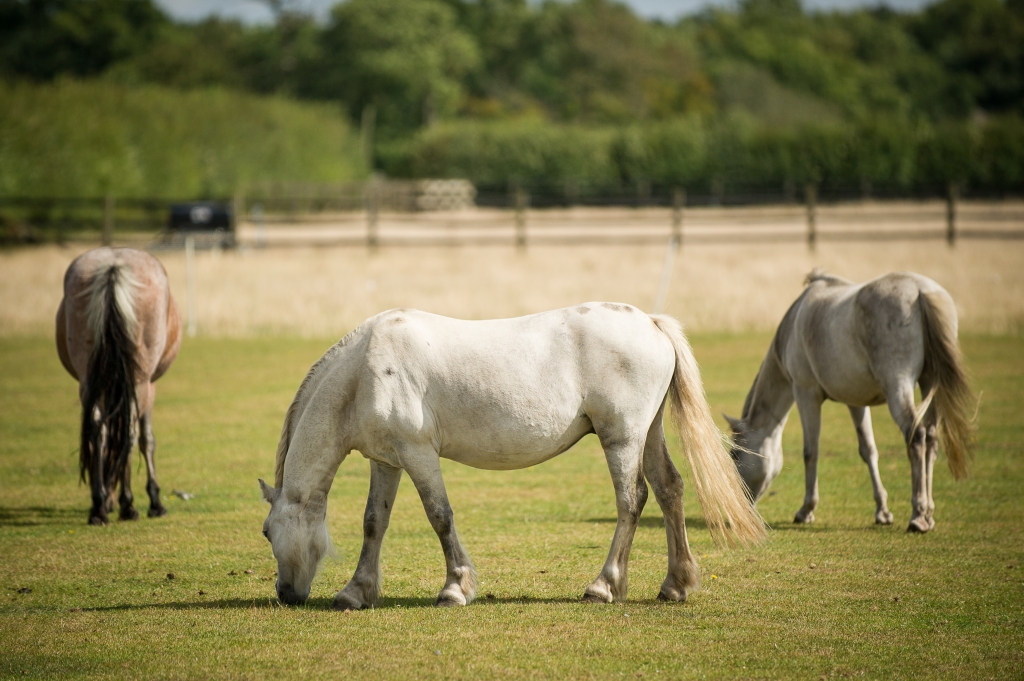
New Survey Of Senior Horses Reveals Reasons For Retirement
The results of a new survey on senior horse health and management have shed light on the reasons why horses may be retired. The work should help guide how and when healthcare intervention may help to prolong active, healthy lives for seniors.*
Horses of 15+ years of age, often classified as seniors, are estimated to make up around one-third of the world’s equine population** but information on their management and health is limited. The recent nationwide survey was conducted in the US by the Gluck Equine Research Center at the University of Kentucky in association with the SPILLERS™ brand, via the WALTHAM™ Equine Studies Group. It is a first step in finding out more about the risk factors for retirement of seniors and ultimately how active quality of life may be extended.
“This survey has highlighted several interesting retirement trends,” said Sarah Nelson, Product Manager at Mars Horsecare, home of the SPILLERS brand. “With a better understanding of when and why senior horses are being retired we hope, eventually, to be better placed to monitor for, prevent (where possible), and treat the underlying conditions early on, to help horses stay active and healthy for longer.”
A total of 2717 completed surveys were analysed. Respondents were predominantly leisure owners (~65%), with fewer equine professionals (~35%), and most of the horses were being used for pleasure riding or driving (~39%) or were in full retirement (~40%).
· Most (62%) horses were retired between 15-24 years of age, with health problems cited as the main reasons. Horses with owner reported veterinary-diagnosed laminitis, lameness and Degenerative suspensory ligament desmitis had higher odds of retirement than those that did not have these conditions.
· Mares had a higher risk of retirement than geldings. This may be partially due to mares used for breeding not undertaking much structured exercise.
· Just over 1 in 6 horses in the study were affected by low muscle mass according to their owners.
o Age, sex, osteoarthritis, laminitis, pituitary pars intermedia dysfunction (PPID), and primary use were identified as risk factors for low muscle mass.
o Geldings had a higher risk of low muscle mass than mares, which may be a result of low testosterone.
o Horses with owner-reported veterinary-diagnosed PPID, osteoarthritis and laminitis had a higher risk of low muscle mass.
o Primary use was identified as a risk factor for low muscle mass, with retired horses having a higher risk than horses used for competition or pleasure riding.
o Owner-reported low muscle mass was perceived to affect welfare and the ability to work in the majority of senior horses.
“A prolonged working/active life may not only be desired by owners but is also likely to provide health and welfare benefits to the horse," said Alisa Herbst, who led the study. We hope the results of this study may be useful for veterinarians caring for senior and geriatric equines, by helping to achieve this.
“The information may aid in the investigation of diseases affecting senior horses and in establishing senior horse-owner education programs. The low muscle mass risk factor list may assist vets in identifying horses at risk of low muscle mass to be selected for close monitoring", she added. “Vets may also consider inclusion of an objective measurement of muscle atrophy, such as the muscle atrophy scoring system (MASS)***, in annual wellness exams, so that atrophy can be identified and managed as early as possible,” she concluded.
The SPILLERS™ brand has recently co-developed a new equine muscle wastage scoring guide, which is based on the MASS, aiming to help horse owners identify muscle wastage.
The SPILLERS brand has a history of respect and admiration for senior horses which is reflected in their ongoing international research projects. For the past 20 years the brand, via the WALTHAM™ Equine Studies Group, has been involved with many research collaborations which bring together world-leading equine veterinary, nutrition and research experts to support the wellbeing, performance and longevity of senior horses and ponies.
Further information on Dr. Amanda Adams' lab at the University of Kentucky Gluck Equine Research Center, where the project commenced, can be found here.
References
**Ireland JL. Demographics, management, preventive health care and disease in aged horses. Veterinary Clinics: Equine Practice 2016;32:195-214.
***Herbst, A.C., Johnson, M.G., Gammons, H., Reedy, S.E., Urschel, K.L., Harris, P.A. and Adams, A.A., 2022. Development and evaluation of a muscle atrophy scoring system (MASS) for horses. Journal of Equine Veterinary Science, p.103771
More from Spillers

 2 years ago
2 years ago  1839 views
1839 views
